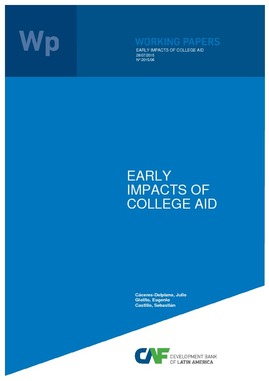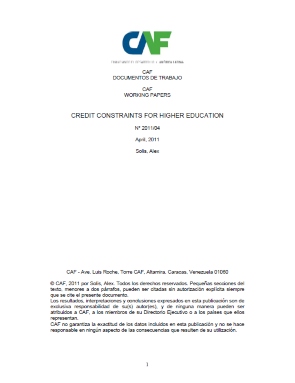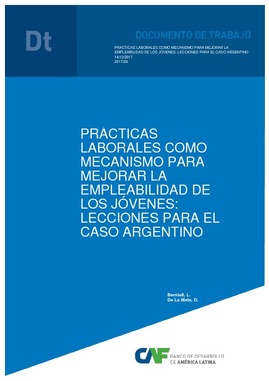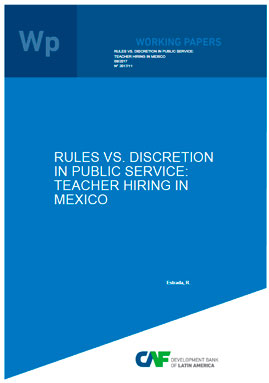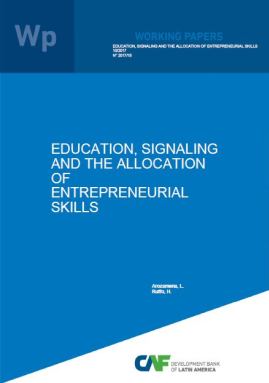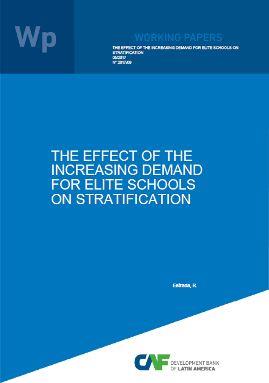Buscar
Mostrando ítems 1-10 de 54
Early Impacts of College Aid
(CAF, 2015-07-28)
We analyze the impact of an expansion in government-guaranteed credit for higher education in Chile on a sample of elementary and high school students. Using students who had an alternative source of funding as a control ...
Credit Constraints for Higher Education
(CAF, 2011)
This paper addresses the importance of credit constraints explaining the gap on
college enrollment between students coming from rich and poor families. Measuring the effect of credit constraints on college enrollment is ...
Prácticas laborales como mecanismo para mejorar la empleabilidad de los jóvenes: Lecciones para el caso argentino
(CAF, 2017-12-14)
El desempleo y la informalidad son más altos para los jóvenes que para los adultos. Las causas detrás de este problema se relacionan con las barreras al primer acceso al mercado del trabajo y pueden clasificarse en dos ...
Rules vs. Discretion in Public Service: Teacher Hiring in Mexico
(CAF, 2017-08-18)
In this paper, I use a unique empirical setting that allows me to compare the performance of teachers hired in a discretionary process led by the teachers’ union in Mexico with the performance of those hired on the basis ...
Poor Little Children: The Socioeconomic Gap in Parental Responses to School Disadvantage
(CAF, 2017-11-08)
In this paper, we study how parents react to a widely-used school policy that puts some children at a learning disadvantage. Specifically, we first document that, in line with findings in other countries, younger children ...
Education, signaling and the allocation of entrepreneurial skills
(CAF, 2017-10-02)
We assess the allocative importance of education when workers can choose to self-employ. To do so, we build a model combining educational choices with the labor market and selfemployment. Education can increase workers' ...
The Effect of the Increasing Demand for Elite Schools on Stratification
(CAF, 2017-05-31)
I use detailed applications data to document a case in which, contrary to prevailing concerns, increasing school stratification by ability co-existed with stable stratification by family income: Mexico City public high ...
El Fenómeno de los NiNis en América Latina
(CAF, 2016-12-30)
En los últimos años, y en todos los países de la región, se ha ido incrementando la preocupación por la situación de los jóvenes que ni se encuentran insertos en el sistema educativo ni se han integrado al mercado laboral ...
Internet and Labor Income: Places and Activities in Colombia
(CAF, 2016-12-21)
Despite the literature in the richest countries about the positive correlation between Internet and income, there is still an open question about the utility of this technology the developing world. This paper uses Propensity ...
Inequality, Crime, and the Long Run Legacy of Slavery
(CAF, 2016-12-25)
This paper investigates the relationship between economic inequality and crime in Colombian municipalities. Following recent scholarly research that suggests that the legacy of slavery is largely manifest in persistent ...


